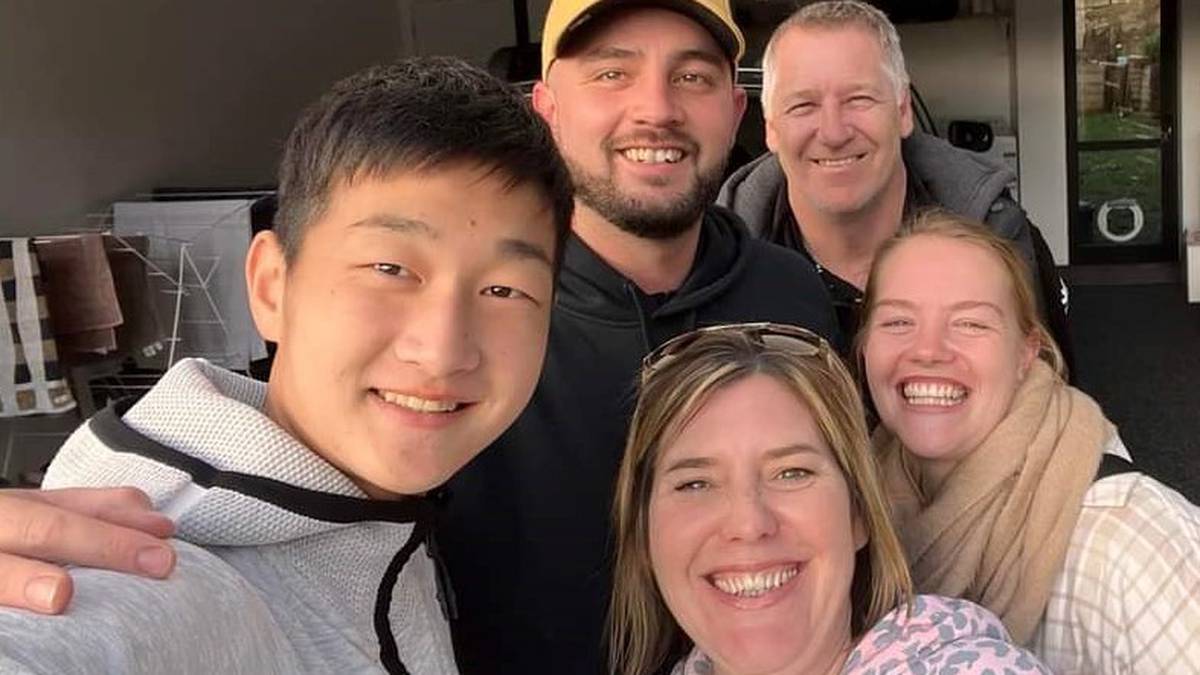Hazel from Whangārei says their international student Konosuke was a pleasure to have in their home, and they now have a friend for life.
As I write this, I’m currently travelling between international education fairs across Japan, Vietnam and Thailand, where my role as project manager of Study Northland allows me to meet with parents and students wanting to
study in New Zealand.
As well as sharing with these families all of the reasons Taitokerau, Northland is a great place to live and study, I answer their questions – which, like most Kiwi parents, are centred around the safety and wellbeing of their children while they are away from home. Who will look after my child, who will feed them, will they be safe?
With my work being delivered through Northland Inc, the regional economic development agency, I work alongside schools across the region to facilitate hosting students from across the globe within their wider school communities. It is a big decision for parents to send their children to the other side of the world; they want them to be safe and to have someone care for them like family while they are away from home. For the students, being a long way from home and speaking a different language to their own can be a big transition.
An important part of the success of the international education programme is the homestay families who students stay with – for a student, the homestay is their happy place.
/cloudfront-ap-southeast-2.images.arcpublishing.com/nzme/3YS56KQPLY5YK2Z5KA5FLQXSMM.jpg)
International students are coming back to Northland to study at high schools in Whangārei and Kerikeri from the beginning of 2023 and we are looking for homestay families for these amazing young people. The benefits of being a homestay family aren’t just weekly rent payments; many families speak of a wide range of great and often unexpected benefits, and building relationships that often last well beyond the time the student is in their home.
“Our experience of having Konosuke stay with us was one of our happy memories. It was lovely to experience a little Japanese culture and talk about how they live their lives and the differences.
”Konosuke was very polite and a pleasure to have in our home and we have stayed in touch with regular messages. We have a friend for life,” – Hazel, a homestay host from Whangārei said.
We often speak about growing global competency as a benefit of international student exchanges. Essentially, this covers the positives of being exposed to cultures, languages, customs, and traditions which shape other countries, opening eyes to the world around us and creating skills in interacting with and understanding different cultures. Global competency not only benefits the international students who experience Taitokerau Northland, but also those families and communities who get to share in hosting students from other countries.
/cloudfront-ap-southeast-2.images.arcpublishing.com/nzme/OFNHMABMGZTT7A3BINY5TAT2GI.jpg)
Students come to our region excited for the chance to experience our culture, learn our languages and grow their understanding of what New Zealand, and specifically Northland, is all about. The cultural exchange which gets shared, not only between the host family and their student, but between the student and the entire host family, can expand horizons and open eyes to cultures and traditions outside of our own.
“I absolutely loved the experience. Getting to learn about another’s culture while giving the young student practice in English. The cultural exchange is rich and the delight in giving students first-time experiences in the New Zealand country is heart-warming.” – Homestay family, Whangārei Girls High School
Next year will see international students return to the region in numbers not possible since Covid-19, where they will be integrated into the communities of schools across the region. Immersed in the daily lives of their homestay families, students will attend schools including Whangārei Girls’ High School, Springbank School, Whangārei Boys’ High School, Huanui College and Kerikeri High School, where they will learn alongside and connect with their Northland peers.
Depending on the country they are from, some students will stay for a couple of years while others will only stay for one year, six months or even one term. We also occasionally host large groups from a sister school – they tend to stay in Northland for between two and three weeks.
/cloudfront-ap-southeast-2.images.arcpublishing.com/nzme/6R3PPWWEZXBTMCNZI35222MDUM.jpg)
International homestay experiences often see families stay in contact with their host student, sending them home with experiences, memories and stories which they will share with their own communities. Many students plan to bring their families to New Zealand to share with them what they have experienced here, creating international ambassadors for the Northland region who can speak first-hand about the amazing experiences on offer. Similarly, homestay families learn about another country and culture from their international student, and can end up with a place to stay overseas too.
Support is provided through the schools that host the students, with dedicated resources available to help both homestay families and students have smooth transitions. From buses to and from school, carpooling for homestay students, and a number of school-organised activities, both the school and homestay community come together to support families and students throughout the time that they host an international student.
At the heart of the benefits of the international student programme is the opportunity for connection. Many families speak of their children forming great friendships with the students they host, with some saying that students quickly become part of the family.
With so many students excited to visit Northland next year, we’re currently taking applications for homestay families with a range of different options available. If you’re interested in finding out more, visit https://www.studynorthland.nz/article/become-a-homestay-family/
• Jo Lees is Project Manager for Study Northland at Northland Inc, the region’s Economic Development Agency.
/cloudfront-ap-southeast-2.images.arcpublishing.com/nzme/LWAEMFKHON6ZNJFVRRLWSOTY7A.jpg)




